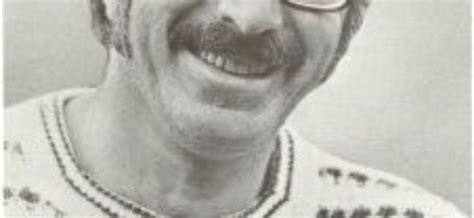A Quote by Tina Brown
Your normal Wall Street big-swinging Richard has enough of a lingering moral compass to at least tell himself that his wizardry benefits somebody or something besides himself. You know, his cleverness makes capital markets more efficient. It provides credit to productive enterprise. Whatever.
Related Quotes
I think the money for the solutions for global poverty is on Wall Street. Wall Street allocates capital. And we need to get capital to the ideas that are successful, whether it's microfinance, whether it's through financial literacy programs, Wall Street can be the engine that makes capital get to the people who need it.
First of all, although men have a common destiny, each individual also has to work out his own personal salvation for himself in fear and trembling. We can help one another to find the meaning of life no doubt. But in the last analysis, the individual person is responsible for living his own life and for "finding himself." If he persists in shifting his responsibility to somebody else, he fails to find out the meaning of his own existence. You cannot tell me who I am and I cannot tell you who you are. If you do not know your own identity, who is going to identify you?
At that instant he knew that all his doubts, even the impossibility of believing with his reason, of which he was aware in himself, did not in the least hinder his turning to God. All of that now floated out of his soul like dust. To whom was he to turn if not to Him in whose hands he felt himself, his soul, and his love?
There is a note that comes into the human voice by which you may know real weariness. It comes when one has been trying with all his heart and soul to think his way along some difficult road of thought. Of a sudden he finds himself unable to go on. Something within him stops. A tiny explosion takes place. He bursts into words and talks, perhaps foolishly. Little side currents of his nature he didn't know were there run out and get themselves expressed. It is at such times that a man boasts, uses big words, makes a fool of himself in general.
There is no deception on the part of the woman, where a man bewilders himself: if he deludes his own wits, I can certainly acquit the women. Whatever man allows his mind to dwell upon the imprint his imagination has foolishly taken of women, is fanning the flames within himself -- and, since the woman knows nothing about it, she is not to blame. For if a man incites himself to drown, and will not restrain himself, it is not the water's fault.
Man—every man—is an end in himself, not a means to the ends of others; he must live for his own sake, neither sacrificing himself to others nor sacrificing others to himself; he must work for his rational self-interest, with the achievement of his own happiness as the highest moral purpose of his life.
See that unfortunate soldier who is falling hurt to death ("tombe blessé à...", Fr.) on the battlefield; he learns that his folks have vanquished and dies happy. He detached himself from himself (s'est détacher de lui-même", Fr.), has identified himself with something greater and more lasting than himself; his homeland ("patrie", Fr.); thus, while dying as an individual, he has the certainty to survive in a larger existence.
The act of writing bears something in common with the act of love. The writer, at his most productive moments, just flows. He gives of that which is uniquely himself. He makes himself naked, recording his nakedness in the written word. Herein lies some of the terror which frequently freezes a writer, preventing him from producing. Herein, too, lies some of the courage that must be entailed in letting others learn how one has experienced or is experiencing the world.




































